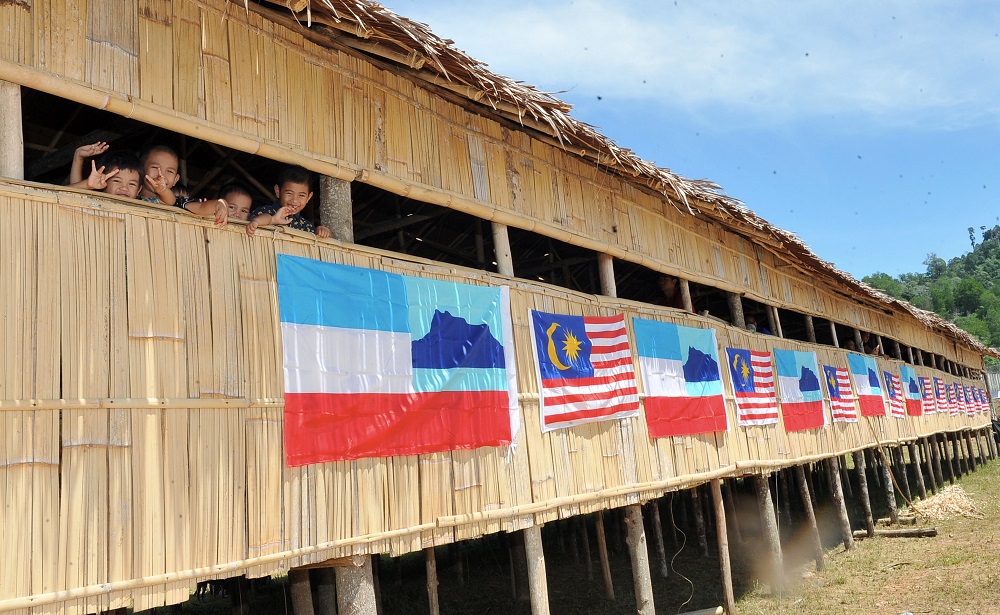KOTA KINABALU, Dec 7 — The Sabah Temporary Pass (PSS), a document to be issued to all foreigners in the state, is needed to address its chronic problem with illegal immigration, according to experts.
However, they said the move will need other supporting measures and policies to be effective.
Analysts lauded the introduction, calling it a commendable step towards combating a growing statelessness problem that could fester into more serious issues in the future.
“Some sort of documentation or registration is clearly needed, as these ‘stateless’ people are not going away anytime soon, and if they are left undocumented it is even more detrimental to the security of the state, as they would have to resort to illegal activities to make a living,” said Senior Fellow at the Singapore Institute of International Affairs Oh Ei Sun.
Oh said the documentation would help set out basic human rights regardless of immigration status, such as to education and healthcare.
Universiti Teknologi Mara’s Tony Paridi Bagang supported the move but cautioned that Sabah’s complex immigrant population could bog down the attempt.
Possible issues include incomplete, conflicting or dubious documents, he said.
“It would take some time to address these problems. I do not have the answer whether the temporary pass will solve the problem once and for all but at least administratively it would provide mechanisms to develop next course of actions or policies,” he said.
The government announced that it will run a simulation next month before the pass comes into force by June 2020. A town hall session will follow to address questions and concerns from the public, Opposition and NGOs.
The state has been forced to clarify repeatedly that the pass was not a way to surreptitiously grant citizenship.
Some 600,000 foreigners in the country holding the IMM13, Surat Burung-Burung and Census Certificates are eligible to receive the temporary pass. Of these, 136,055 are thought to be the main holders of the documents, followed by their dependents.
Detractors say the pass is not a solution, either permanent or even temporary.
Kiulu assemblyman Datuk Joniston Bangkuai claimed issuing the temporary pass was tantamount to allowing immigrants to continue to increase in population.
“There has to be transparency to determine the status of the stateless people. What mechanism was used to determine their status? Are the 600,000 all stateless people? It’s a huge number,” he said.
Most are believed to be a result of wave of refugees from the Philippines during the 1970s who were seeking asylum from civil unrest, or their descendants.
Bangkuai said that a more reasonable approach would be to engage the United Nations High Commissioner for Refugees (UNHCR) and hold discussions with the Philippines government.
“Why can’t the government just enforce the Immigration laws governing immigrants without valid documents to deal with the problem? The immigrants’ country of origins should issue them travel documents NOT our government,” said Bangkuai.
Suspicions over the pass stem primarily from the previous Projek IC, a clandestine operation to systematically document illegal immigrants in the 80s and 90s in return for political support.
The massive operation had long been suspected but was only exposed during a royal commission of inquiry into the state’s illegal immigrant issue held this decade.
This issue has been politicised by both sides of the political divide and remains a hot button topic regardless of which party is in power.
He said the Warisan-led ruling coalition now was tasting the same criticism used against Barisan Nasional when it had still been in power.
“It always goes back to being a political issue. In the end, administrative and policies matters become haywired,” said Bagang.
“Administratively, this is a way forward but the process remains a mystery and this is what’s causing doubt.
Oh said such lingering suspicions were understandable and said only full transparency could allay this.
“So the townhall sessions are crucial to ameliorate such suspicions. The registration exercise has to be done openly and with accountability,” said Oh.
“If not, the 600,000 is a huge number. If left unchecked, they can outnumber the natives which will lead to social and political implications,” said Joniston.
“We are not being inhumane but natives here are concerned for their future,” he added.
Bagang said that the government’s “top down” approach to pass also caused the problems that they are now scrambling to address.
He said the ruling coalition was concerned as the pass has the potential to become a feather it its cap or an albatross around its neck.
Any failure or inability to introduce and implement the pass in an open and trustworthy manner will expose them, he said.
“The Opposition will see this as an issue that can be played up for sure,” he said.



















